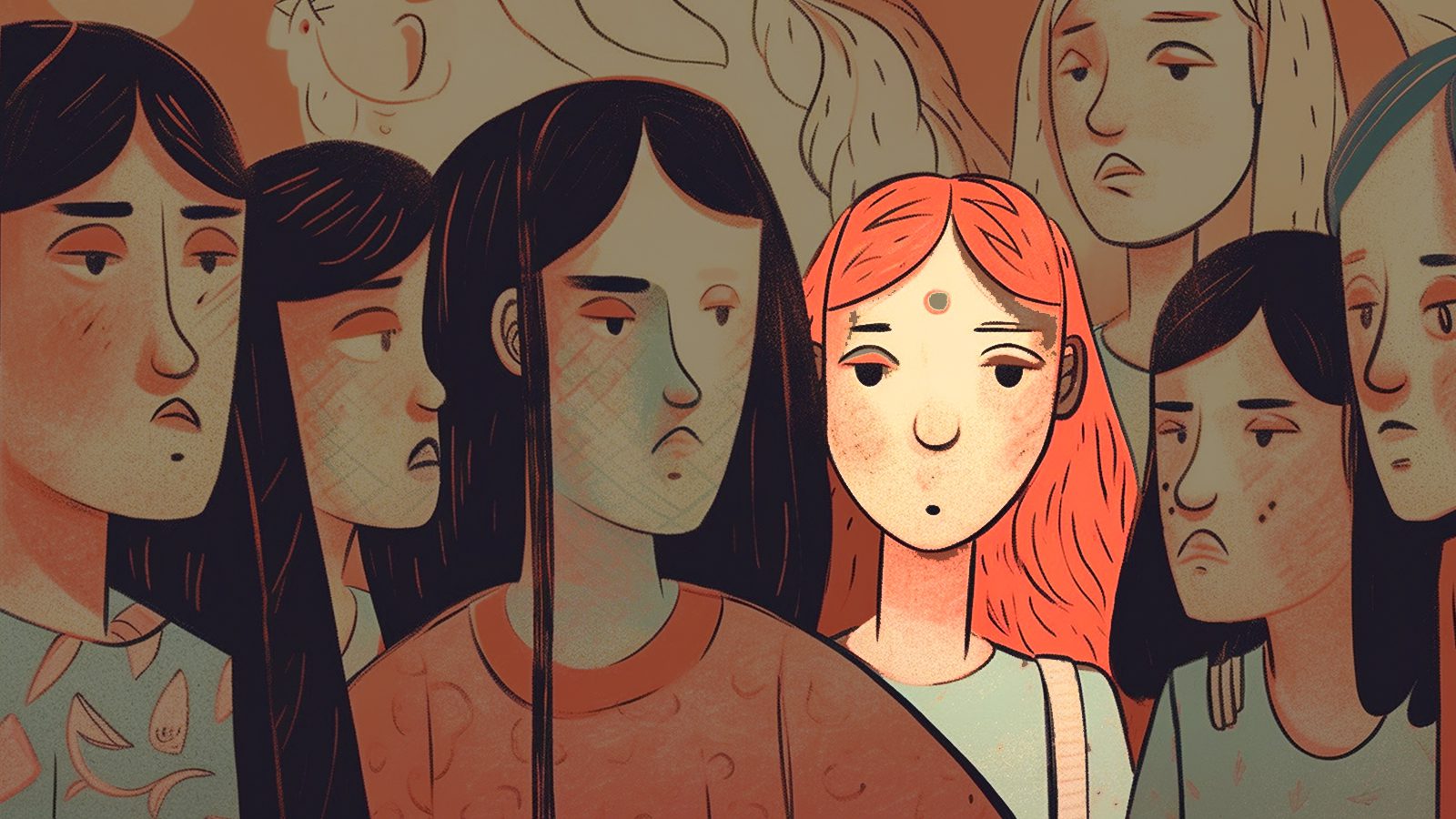Can you fix these friendships?
Have you ever wondered why your circle of friends seems to be shrinking? It’s a puzzle many face, and the answer isn’t always clear. Friendships are vital to our happiness and overall well-being. They provide support, laughter, and invaluable memories. But what happens when those friendships fade, and social gatherings become less frequent? This article explores the subtle reasons friends might stop hanging out and offers practical solutions to rekindle those bonds. Remember, understanding is the first step to improvement. So, with a little effort and self-awareness, you can strengthen your friendships and continue to thrive.
10 Reasons Your Friends Stopped Hanging Out With You
It can be difficult to undergo this self-examination. Nothing here intends to harm you. Rather, it offers a third-person perspective and asks you to look inward and take each solution to heart.

1 – You Have a Lack of Proper Communication With Your Friends
Communication is the cornerstone of any relationship, and friendships are no exception. When communication falters, misunderstandings can sprout, leading to feelings of neglect or abandonment. Perhaps you’ve been unintentionally aloof, or life’s hustle and bustle has you missing messages and calls. Whatever the cause, a communication breakdown can send the wrong signal to your friends.
Example:
Imagine you’ve had a hectic week at work, and your friend has been trying to get in touch to plan a weekend outing. However, you’ve either responded late, leaving your friend feeling unimportant and ignored. They might start to wonder if you’re distancing yourself on purpose.
Solution:
The key is to be proactive and transparent. Tell your friends if you’re swamped with work or have a tough time. A simple message explaining your situation can go a long way in maintaining trust. Make a conscious effort to respond to invitations and messages, even if it’s to say you’re not available right now, but I would love to catch up later. Good communication nurtures trust and understanding, the bedrock of lasting friendships.
2 – Constant Negativity Made Your Friends Stopped Hanging Out
Friendships thrive on a balance of give and take, including the emotional aspects. While sharing troubles and seeking support is perfectly normal, consistently leaning towards negativity can be draining for your friends. Constant complaining, pessimistic views, or always focusing on the downside can push friends away. That often happens without you realizing it.
Example:
Consider this scenario: Whenever you meet your friends, you vent about your job, relationships, or other life frustrations. While your friends initially offer sympathy and advice, over time, they feel more like your emotional dumping ground rather than equal partners in a supportive friendship.
Solution:
The key here is balance. It’s important to share your challenges but also take an interest in your friends’ lives and the positive aspects of your own. Mix in conversations about happy subjects, ask about their well-being, and celebrate the good times together. This balance can transform the atmosphere from constant stress to mutual support and positivity.
3 – Not Showing Appreciation
Appreciation is a powerful tool in maintaining any relationship, especially friendships. Sometimes, in the hustle of life, we forget to show gratitude to those who make our days brighter. This oversight, albeit unintentional, can make friends feel undervalued and unappreciated.
Example:
Imagine your friend frequently helps you, whether by giving you rides, helping with tasks, or being there when you need emotional support. However, if you rarely acknowledge these gestures or fail to reciprocate in some way, your friend might feel taken for granted and question the reciprocity of your relationship.
Solution:
Regularly expressing gratitude is a wonderful way to show friends they’re valued. This expression doesn’t have to be a grand gesture. Simple things like saying “thank you,” acknowledging their effort, or returning the favor in small ways can make a significant difference. Feeling appreciated can strengthen the bond and ensure a healthy, lasting friendship.
4 – Competitiveness and Jealousy Pushed Away Your Buddies
Healthy competition can be fun and even motivating. But it can sour friendships when it turns into jealousy or constant one-upmanship. The need to compete with your friends, whether in terms of career success, personal life, or material possessions, creates tension and can drive a wedge between you.
Example:
Suppose you always want to compare your achievements with your friends, often trying to outdo or minimize their successes. This behavior can make your friends uncomfortable and reluctant to share their good news, fearing your negative reaction.
Solution:
Celebrate your friends’ achievements as you would your own. Recognize that each person’s path is unique, and success is not a zero-sum game. Encouraging and supporting your friends in their endeavors strengthens your bond and creates an environment of mutual respect and admiration.
5 – Ignoring Boundaries Made Your Friends Stopped Hanging Out
Respecting personal boundaries is crucial in every healthy relationship. Overstepping these boundaries, whether by being too intrusive, overbearing, or disregarding friends’ comfort zones, can make friends feel disrespected and lead to their pulling away.
Example:
Imagine you frequently drop by your friend’s place unannounced or press them for personal information they’re uncomfortable sharing. Such actions can make your friend feel like their personal space and privacy are not being respected.
Solution:
It’s important to be mindful of your friends’ boundaries. Please pay attention to their comfort levels and respect their need for space and privacy. It’s always better to ask than assume if you’re unsure. Respecting boundaries is a sign of a mature and caring friendship.

6 – Being Unreliable Caused Them to Avoid Hanging Out With You
Reliability is a foundation of trust in friendships. Consistently being late, canceling plans at the last minute, or failing to follow up on promises can signal to your friends that they’re not a priority, leading to frustration and a breakdown in the relationship.
Example:
If you consistently arrive late to meetups or frequently cancel plans, your friends may feel that their time and effort are not valued. This uneasiness can lead them to stop making plans with you altogether.
Solution:
Commit to being more punctual and reliable. If you make a plan, do your best to stick to it. If something unavoidable arises, apologize and communicate it as early as possible. Showing that you respect their time and effort goes a long way in maintaining healthy, long-lasting friendships.
7 – You Both Outgrew the Friendship
Common interests often form the basis of friendships. Over time, as people grow and evolve, their interests may change, leading to a natural drifting apart. This lack of shared activities or interests can reduce the opportunities for bonding and enjoyment together.
Example:
Perhaps you used to spend weekends hiking with your friends, but lately, your interest has shifted to other hobbies. As a result, you decline invitations to hike, leading to fewer interactions and shared experiences with your friends.
Solution:
Finding new common grounds or interests that can bring you together is important. Be open to trying out your friends’ new hobbies and sharing your new interests with them. Finding new activities to enjoy together can rekindle the joy and connection in your friendships.
8 – Oversharing on Social Media Can Cause a Rift
Social media plays a large role in our lives today. However, oversharing or constantly posting about personal matters can make friends uncomfortable, especially if it involves them or their private moments without consent.
Example:
Imagine you share photos or details of outings with your friends without their permission. They might feel their privacy is being invaded or become wary of spending time with you out of concern for what might be shared online.
Solution:
Respect your friends’ privacy on social media. Always ask for permission before posting photos or details about them. Be mindful of what you share, ensuring it doesn’t overstep the boundaries of your friends’ comfort levels. This respect for privacy can strengthen trust and respect in your friendships.
9 – Always Demanding the Center of Attention Makes Friends Stop Hanging Out
Overview:
While it’s natural to want to share your life with friends, constantly seeking the spotlight or making every conversation about yourself can leave friends feeling sidelined and unimportant.
Example:
Consider a situation where you dominate conversations during group hangouts, often interrupting others or steering the topic back to yourself. This behavior can make your friends feel their opinions and experiences are undervalued.
Solution:
Practice active listening and encourage your friends to share their stories and opinions. Show genuine interest in what they say, and resist the urge to constantly redirect the focus to yourself. Creating a balanced and inclusive conversational space can make your friends feel more valued and heard.
10 – Inflexibility and Lack of Compromise
Friendships require a degree of flexibility and compromise. Being rigid in plans, decisions, or opinions can frustrate friends, especially if it means constantly catering to your preferences.
Example:
If you always insist on choosing the venue, activity, or even discussion topics, your friends might feel like their preferences are never considered, leading to resentment.
Solution:
Work on being more flexible and open to compromise. Take turns making decisions about activities or plans, and be open to suggestions and ideas from your friends. Showing you value and respect their preferences can create a more harmonious and balanced friendship dynamic.
Final Thoughts on Understanding Why Your Friends Stopped Hanging Out and Reshaping Your Behavior
Friendships are like beautiful flower gardens; they require care, attention, and nurturing to thrive. So, take a moment to reflect on your relationships, acknowledge areas for improvement, and take proactive steps to maintain these vital connections. After all, hanging out with friends means a life well-lived, filled with support, laughter, and abundant positive energy.
Let’s cherish our friendships, nurture them with kindness and understanding, and enjoy the wonderful journey of building lasting bonds.



















